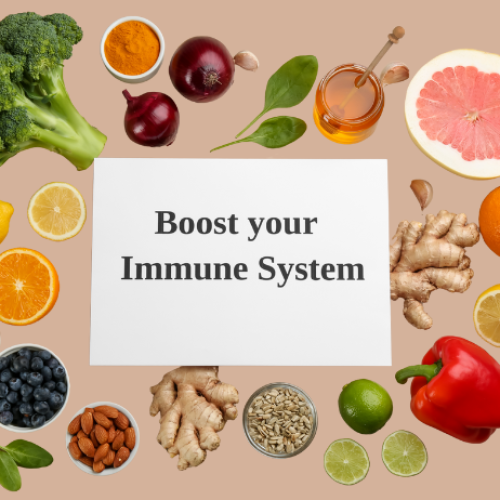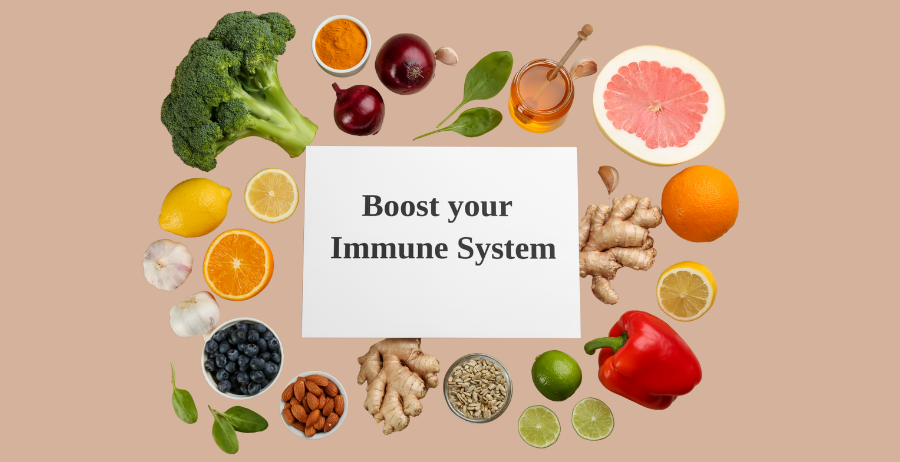Superfoods are nutrient-rich foods considered to be especially beneficial for health and well-being. Superfood guide lwspeakcare are packed with vitamins, minerals, antioxidants, and other essential nutrients that help support a healthy body and mind. Including superfoods in your diet can help improve overall health, boost immunity, and reduce the risk of chronic diseases.
In a world where quick meals often outrun thoughtful nutrition, reclaiming your health can feel overwhelming. Yet the path to lasting vitality is far more straightforward than it seems. The key isn’t a miracle supplement or a restrictive trend. It lies in the naturally potent foods celebrated in the Ultimate Superfood Guide LWSpeakCare. It takes you well beyond a simple list of “healthy picks.” Here, you find all what you need to know about it .
Table of Contents
ToggleWhat Is Superfood Used For?
Superfoods are used to enhance overall health and wellness by providing essential nutrients that support bodily functions, reduce the risk of disease, and promote a balanced diet. They are often incorporated into health-focused diets to boost energy, improve immune function, and support weight management.
What Defines a Truly Powerful Superfood
Superfood” is not an official nutrient category , but it highlights foods with an extraordinary nutrient-to-calorie ratio. Their strength lies in a rich blend of
- Vitamins
- Minerals
- Antioxidants
- Enzymes
And healthy fats. All work together to reduce inflammation, strengthen immunity, guard against chronic illness, and keep the body performing at its best. At LWSpeakCare, the spotlight stays on whole, minimally processed ingredients that deliver exceptional health benefits.
Top 10 Health Superfood Guide Lwspeakcare
These ten superfoods are not exotic ingredients you will struggle to find or afford. In fact, most are everyday staples you can easily keep in your own kitchen. Incorporating them into daily meals requires no special effort. Just simple, practical choices that fit naturally into your regular cooking routine while delivering exceptional nutritional benefits. Let us discover this together.
Here are top 10 health superfood
Blueberries: The Antioxidant Powerhouse
Blueberries are known for their high levels of antioxidants, particularly anthocyanins, which give them their deep blue color. These antioxidants help protect the body against free radicals, reduce inflammation, and may lower the risk of heart disease and cancer. Blueberries are also rich in fiber and vitamin C, making them a great addition to a balanced diet.
Tip: Toss a handful of blueberries into your morning oatmeal, yogurt, or smoothie.
Kale: The Nutrient-Dense Leafy Green
Kale is a cruciferous vegetable loaded with vitamins A, C, and K, as well as calcium, fiber, and powerful antioxidants like quercetin. Its nutrient density makes it an excellent choice for boosting bone health, supporting the immune system, and promoting heart health.
Tip: You can enjoy Kale raw in salads, sautéed, or blended into smoothies
Quinoa: The Complete Protein Grain
Quinoa is a gluten-free grain that contains all nine essential amino acids, making it a complete protein. It is also rich in fiber, iron, magnesium, and manganese. Quinoa supports muscle repair, helps regulate blood sugar levels, and provides sustained energy.
Tip: Use it as a base for salads, added to soups, or take as a side dish.
Chia Seeds: Tiny Seeds with Big Benefits
Chia seeds are small but mighty, packed with omega-3 fatty acids, fiber, protein, and antioxidants. They help reduce inflammation, support digestive health, and can aid in weight management by promoting a feeling of fullness.
Tip: To consume chia seeds can be sprinkled on yogurt, add to smoothies, or make chia pudding.
Salmon: A Rich Source of Omega-3 Fatty Acids
Salmon is a fatty fish rich in omega-3 fatty acids, which are essential for brain health, reducing inflammation, and promoting heart health. It is also a good source of high-quality protein, vitamins D and B12, and selenium. Regular consumption of salmon can help improve cognitive function and support cardiovascular health.
Tip: Enjoy grilled or baked salmon or flake it into salads and bowls
Avocado: The Heart-Healthy Superfood
Avocado is a unique fruit that provides healthy monounsaturated fats, which are good for heart health. It is also high in fiber, potassium, and vitamins C, E, and K. Avocados help lower bad cholesterol levels, reduce inflammation, and support healthy skin.
Tip: You add avocado into salads, sandwiches, or enjoy as guacamole.
Sweet Potatoes: A Versatile and Nutritious Carb
Sweet potatoes are rich in beta-carotene, which the body converts into vitamin A, essential for eye health and immune function. They are also a good source of fiber, potassium, and vitamins B6 and C.
Tip: You can bake, roast, or mash them to add a tasty, healthy twist to any meal
Almonds: The Perfect Snack for a Nutrient Boost
Almonds are a great source of healthy fats, protein, fiber, vitamin E, magnesium, and antioxidants. They help support heart health, manage blood sugar levels, and promote satiety.
Tip: These perfect for snacking on the go, tossing into salads, or adding a crunchy touch to your favorite baked treats!
Greek Yogurt: Protein-Packed and Gut-Friendly
Greek yogurt is higher in protein and lower in sugar than regular yogurt, making it a great option for muscle repair and weight management. It also contains probiotics, which support gut health and boost the immune system.
Tip: You can have Greek yogurt on its own, with fruit, or as a base for smoothies.
Turmeric: The Golden Spice for Inflammation
Turmeric contains curcumin, a compound with powerful anti-inflammatory and antioxidant properties. It can help reduce joint pain, support heart health, and may have cancer-fighting properties.
Tip: You can use Turmeric by adding to curries, soups, or even made into a tea.
What Are the 5 Supreme Superfoods?
While opinions may vary, some commonly recognized supreme superfoods include blueberries, kale, salmon, quinoa, and almonds. These foods are celebrated for their high nutrient density and wide-ranging health benefits.
Is It OK to Eat Superfoods Every Day?
Yes, it is generally safe and beneficial to include superfoods in your daily diet. However, it’s important to consume a variety of superfoods to ensure a balanced intake of nutrients. Moderation is key, as relying solely on a few superfoods can lead to nutritional imbalances.
How to Incorporate These Superfoods into Your Meals
Incorporating superfoods into your meals can be simple and enjoyable. Start by adding blueberries to your morning oatmeal or smoothie. Use kale in salads or as a side dish. Substitute quinoa for rice in your meals. Sprinkle chia seeds on yogurt or add them to baked goods. Include salmon in your weekly meal rotation. Use avocado as a healthy spread or in salads. Roast sweet potatoes for a nutritious side. Snack on almonds for a nutrient boost. Enjoy Greek yogurt as a breakfast or snack option, and add turmeric to soups, stews, or tea for an extra health kick.
Health Benefits of Superfoods
Superfoods are packed with vitamins, minerals, antioxidants, and other nutrients that can help boost your immune system, improve heart health, enhance brain function, and reduce inflammation. For example, blueberries are rich in antioxidants that can help fight free radicals, while spinach is loaded with iron and vitamins that support overall health.
Top Superfoods to Include in Your Diet
- Berries: Blueberries, strawberries, and acai berries are high in antioxidants and vitamins.
- Leafy Greens: Spinach, kale, and Swiss chard are excellent sources of vitamins A, C, and K.
- Nuts and Seeds: Chia seeds, flaxseeds, and almonds provide healthy fats, fiber, and protein.
- Whole Grains: Quinoa, oats, and brown rice are rich in fiber and essential nutrients.
- Exotic Superfoods: Spirulina, maca, and goji berries offer unique health benefits and are often used in smoothies and supplements.
Superfoods for Specific Diets
- Vegans and Vegetarians: Lentils, chickpeas, and tofu are great plant-based protein sources.
- Keto-Friendly: Avocados, coconut oil, and nuts fit well into a low-carb, high-fat diet.
- Gluten-Free: Quinoa, buckwheat, and amaranth are excellent gluten-free grains.
Superfoods and Weight Management
Superfoods can aid in weight loss by boosting metabolism and providing essential nutrients without excess calories. Foods like green tea, grapefruit, and chili peppers are known for their metabolism-boosting properties.
Incorporating Superfoods into Your Daily Routine
- Recipes: Start your day with a smoothie made from spinach, berries, and chia seeds. For lunch, try a quinoa salad with mixed greens and avocado. Dinner could include a stir-fry with tofu, broccoli, and brown rice.
- Smoothies and Juices: Blend kale, apple, and ginger for a refreshing juice. Add spirulina to your morning smoothie for an extra nutrient boost.
- Snacks: Keep nuts and seeds on hand for a quick and healthy snack. Make energy bars with oats, honey, and dried fruits.
Superfoods for Beauty and Skin Health
Certain superfoods can improve skin health and appearance. For example, avocados are rich in healthy fats that moisturize the skin, while berries provide antioxidants that protect against aging.
Superfoods for Mental Well-being
Foods like dark chocolate, walnuts, and fatty fish can help reduce stress and anxiety. These superfoods contain nutrients that support brain health and enhance mood.
Superfoods for Athletic Performance
Athletes can benefit from superfoods that provide energy and aid in muscle recovery. Bananas, sweet potatoes, and lean proteins like chicken and fish are excellent choices for pre- and post-workout meals.
Sustainable and Ethical Superfood Choices
Choosing sustainable superfoods helps protect the environment and supports ethical farming practices. Look for organic and fair-trade options when possible. Foods like quinoa and chia seeds can be grown sustainably and have a lower environmental impact compared to other crops.
Superfoods for Different Age Groups
- Children: Incorporate superfoods like yogurt, berries, and sweet potatoes into their diet to support growth and development.
- Seniors: Foods rich in calcium, like leafy greens and almonds, can help maintain bone health. Omega-3 fatty acids from fish can support cognitive function.
Tips for Buying and Storing Superfoods
When buying superfoods, choose fresh, organic options when possible to ensure maximum nutritional benefits. Store fresh produce in the refrigerator and consume it within a few days. Nuts and seeds should be kept in airtight containers to maintain freshness. For longer shelf life, freeze berries and buy shelf-stable versions of grains and seeds.
Key Insights and Expert LWSpeakCare Strategies
Harnessing the full potential of superfoods requires more than just eating them. It’s about balance, quality, and smart preparation. Follow these expert strategies to maximize health benefits:
- Opt Moderation: Even nutrient-packed foods like nuts and seeds can be calorie-dense. Stick to mindful portions to enjoy their benefits.
- Embrace Variety: No single superfood provides everything; a colorful, diverse diet ensures you get all essential nutrients.
- Prioritize Quality: Opt for organic, wild-caught, and sustainably sourced foods to maximize nutrition and minimize exposure to contaminants.
- Pair with Healthy Fats: Boost absorption of vitamins A, D, E, and K by combining them with healthy fats like avocado or olive oil.
- Cook Thoughtfully: Light steaming preserves nutrients, cooking foods like tomatoes enhances lycopene, and enjoying peppers raw retains vitamin C.
Final Thoughts
Embracing ultimate superfood guide lwspeakcare is one of the smartest investments you can make in your long-term health. This isn’t a quick fixit’s a lifestyle built on intentional, nutrient-rich choices. As Adelle Davis wisely said, “Your diet is a bank account. Good food choices are good investments.”
Start small: toss spinach into your smoothie, snack on a handful of walnuts, or enjoy a salmon dinner this week. These simple, consistent steps, guided by LWSpeakCare, compound over time. Help you boosting your energy, resilience, and overall vitality. Bite by bite, you’re investing in a healthier, more vibrant future








